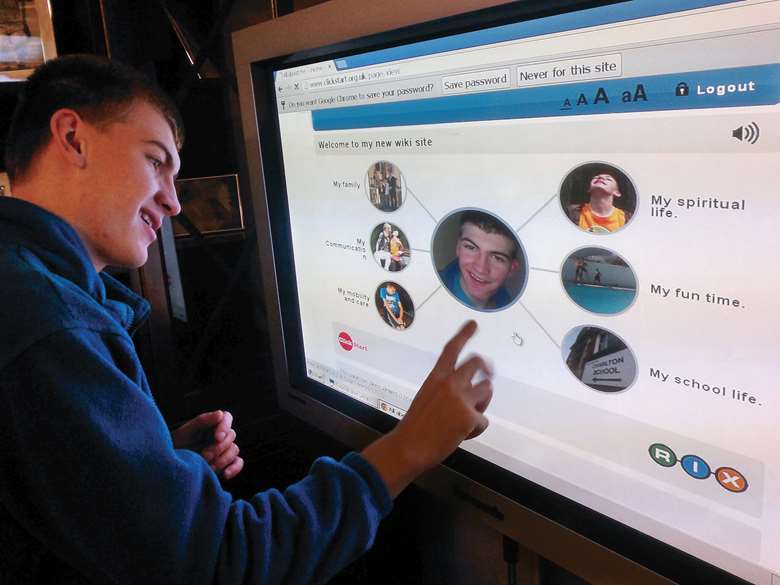Good Idea: Web communication gives young people a voice on care
Laura McCardle
Monday, June 9, 2014
A university-based charitable organisation has helped young people with special educational needs to develop websites holding information about their care and support needs that can be shared.

Specially designed social media sites are enabling young people with special educational needs (SEN) to have a say in their education, health and care (EHC) plans.
Introduced under the Children and Families Act 2014, EHC plans will be formally launched in September to co-ordinate support for all children and young people aged up to 25, replacing statements of SEN.
However, 31 pathfinder areas have been piloting the new system since October 2011 – about a dozen of which have been using "Wiki" sites to co-ordinate young people's care needs.
One of these, the Rix Centre – a charitable research organisation based at the University of East London – has been promoting multimedia advocacy since its launch in 2001, and saw the SEN reforms as an opportunity to build on previous work to develop a product that personalises young people's support.
The result was Wiki sites - easy to use websites that young people with SEN can develop themselves.
"The starting point behind this work is that we make these tools easy to use for people with disabilities – new multimedia authoring tools designed with them – creating easy-build website software that is simple to use," explains Andy Minnion, director of the Rix Centre.
"We designed it with young people with learning disabilities and changed the whole system and interface so you could make it as easy as possible for people to do.
"It's all images, simple point here or point there. It enables people to assemble the website with the minimum of technologies."
The aim is for young people, together with their families, to upload and publish important information about their care and support needs. Their teachers, key workers and any other professionals involved in their care will then be able to access the website and use the information to tailor the support they provide to the needs of the young person.
Media literacy
"People with disabilities communicate in complex ways," Minnion explains. "They are not going to write their plans but they might be able to communicate their wishes by using pictures.
"We can involve people who otherwise don't get to have a voice because they don't communicate in conventional ways but have media literacy. If we've got them involved and you put that on the web in a way that's properly secure with systems that are watertight, we've got the opportunity to let them (share) information between all of that individual's network of support."
Minnion says that working in this way allows young people with SEN to voice their needs in a way that is fun.
However, the key benefit of using Wiki sites to co-ordinate the care of young people with SEN, according to Minnion, is that they put the young person in control.
"It's starting with the individual, working with them, starting with their voice and demands, and everyone responds – my understanding is that is what the SEN reforms are about," he says.
Minnion says some pathfinder authorities have also been using the sites to help them develop their "local offer" - easily accessible information about all of the support available to disabled children and young people and families in the area.
"Using these popular tools, people with learning disabilities have been describing the local services they find useful in their Wiki sites and sharing this information with each other across their neighbourhoods," he explains.
"Crucially for the local offer, the information can help providers to get their services right."




